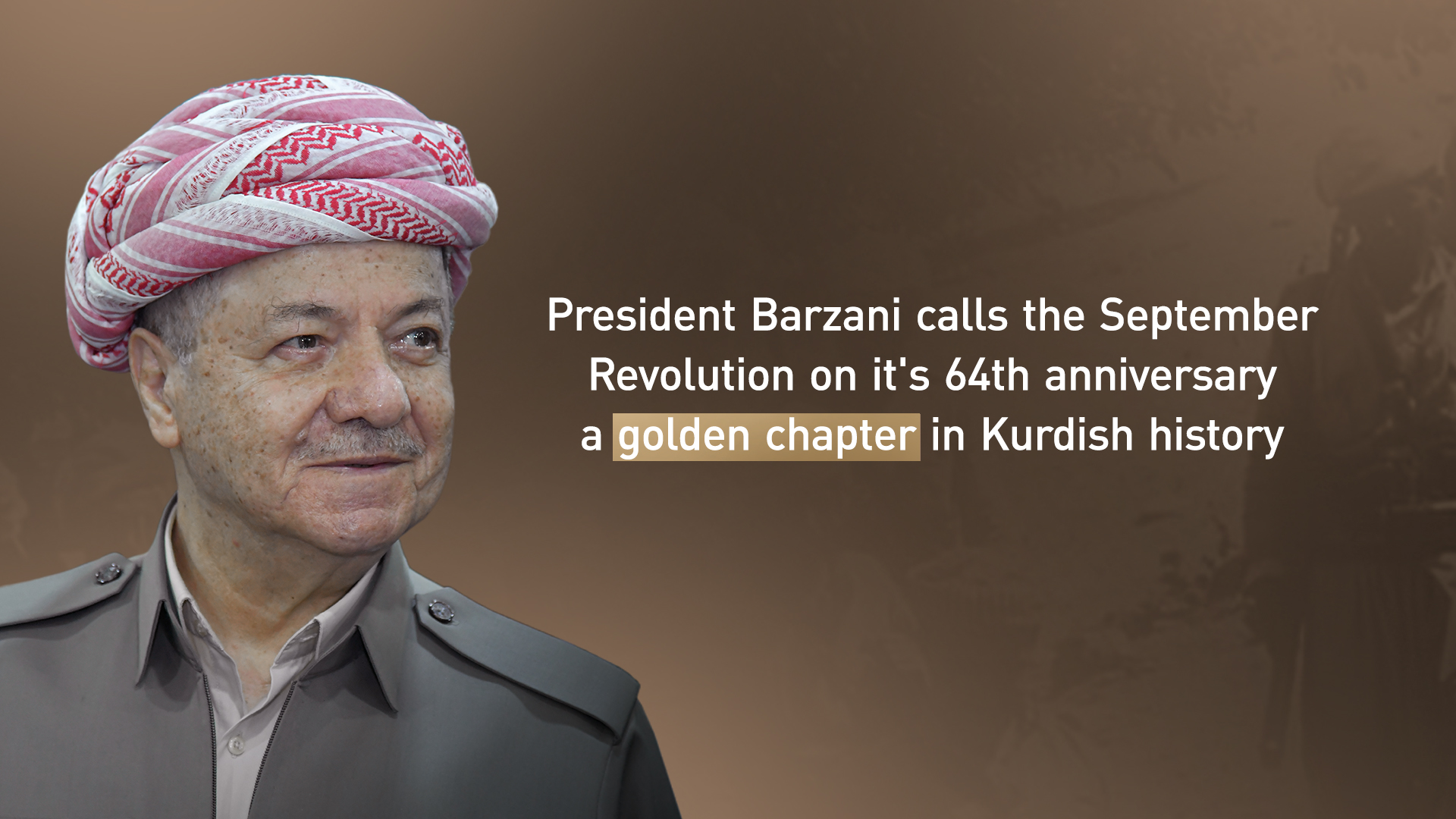President Barzani Marks 64th Anniversary of September Revolution with Tribute to Peshmerga and Martyrs
President Barzani emphasized that the revolution, led by the late Mullah Mustafa Barzani, was the first to unite all segments of Kurdish society in pursuit of their just cause.

ERBIL (Kurdistan24) – On the 64th anniversary of the September Revolution, President Masoud Barzani issued a commemorative message on Wednesday, honoring the revolution’s enduring role in the Kurdish struggle and extending his gratitude to the Peshmerga, cadres, and fighters whose sacrifices paved the path of freedom.
In a message posted on the Brazni headquarters' official Facebook page, President Barzani described the September Revolution as “a golden chapter in the history of the Kurdistan liberation movement,” calling it the most comprehensive political, armed, and popular uprising in Kurdistan’s modern history.
President Barzani emphasized that the revolution, led by the late Mullah Mustafa Barzani, was the first to unite all segments of Kurdish society in pursuit of their just cause.
“The September Revolution succeeded for the first time in history in establishing a solid foundation for the common struggle among the various regions of Kurdistan,” President Barzani wrote. “It witnessed the participation of all components and segments of society in defense of the just cause and the rights of the Kurdish people.”
He described the uprising as a lasting source of strength and inspiration, stating that “its principles and accomplishments will continue to illuminate the path of our people's fight for freedom.”
On the occasion, President Barzani extended his appreciation to the revolution’s cadres and fighters, praising their “resilience, courage, and dedication in the fields of honor and dignity,” and saluted the martyrs who “forged a glorious history for their people.”
The September Revolution, launched on September 11, 1961, was ignited under the leadership of Mullah Mustafa Barzani as a direct response to Iraqi President Abd al-Karim Qasim’s government policy of political repression, targeting Kurdish activists, closing the Kurdistan Democratic Party’s official newspaper Khabat, and shuttering the party’s headquarters in Baghdad.
Following September 1961, Qasim launched a sweeping military campaign against Kurdistan, deploying warplanes alongside tribal units to assault Kurdish towns and villages, particularly those in the Barzan region—the heart of the revolution.
The revolution continued for 14 years until it was brought to a halt in 1975 by the Algiers Agreement, a deal struck between Iraq and Iran that traded Iraqi territory along the Shatt al-Arab in exchange for Tehran’s withdrawal of support for the Kurdish liberation movement. This accord, seen as a profound betrayal, forced a temporary end to the September Revolution.
Yet, its legacy endured. The Peshmerga reignited their struggle with the launch of the Gulan Revolution on May 26, 1976, which carried forward the flame of Kurdish resistance.
Among the greatest achievements of the September Revolution was the Mar. 11, 1970 Autonomy Agreement, in which the Iraqi government officially recognized the rights of the Kurdish people and granted autonomy to Kurdistan for the first time.
Despite its forced suspension in 1975, the September Revolution remains a defining moment in Kurdish history. It is celebrated as the movement that established the political and military foundations of the Kurdish cause, inspiring subsequent generations to pursue freedom and dignity.
On its 64th anniversary, President Barzani reaffirmed that the sacrifices of the revolution’s martyrs will forever guide the Kurdish nation. “On this occasion, we send thousands of greetings to the martyrs of the September Revolution and all the martyrs on the path to Kurdistan's freedom,” he concluded.